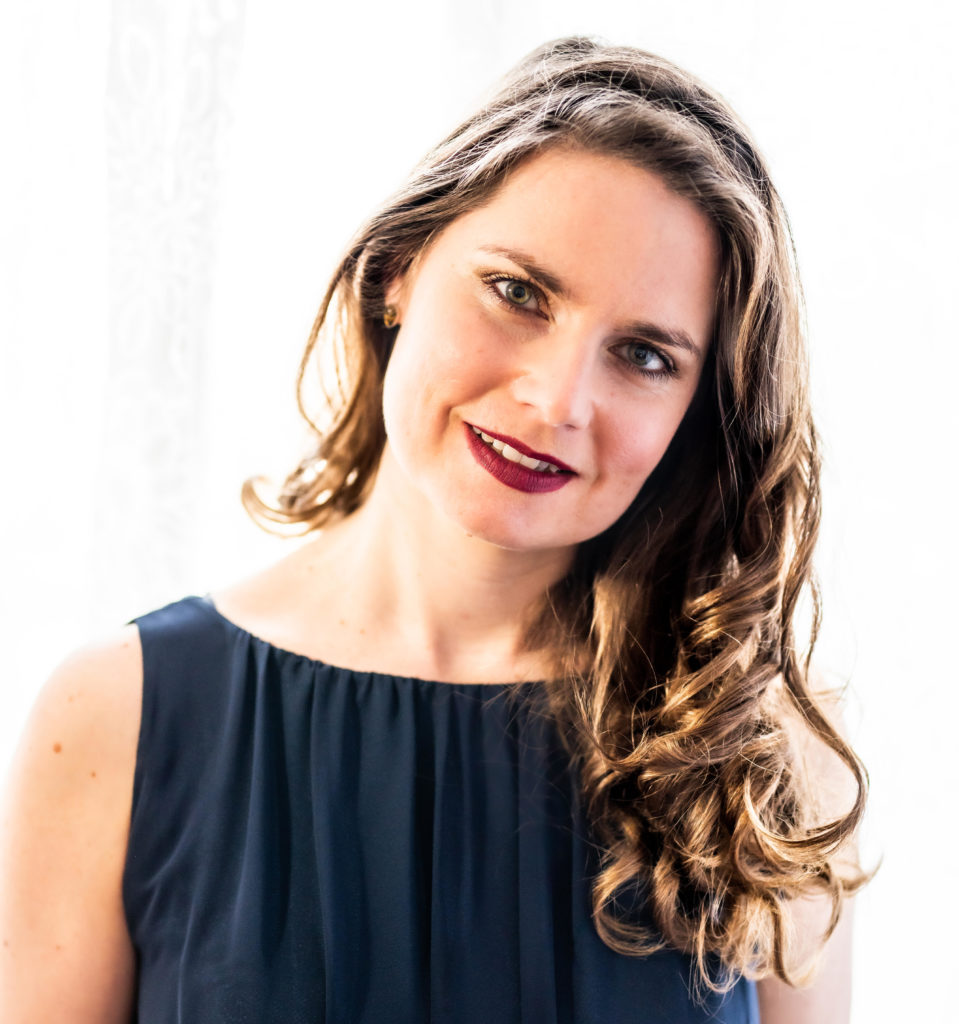- How did you discover your knack for teaching English?
It really happened by accident. I had just arrived in Austria and was singing summer gigs and doing artistic training programs both there and in Italy. I wanted to stay in Europe longer, but didn’t really have a plan yet as to how I would manage it financially. A colleague of mine who was a musician in Vienna recommended that I teach business English with her. I started working with the company and found that teaching English was an incredibly fun and interesting way to make money. Soon thereafter, I was hired to work with children at a private school, integrating language and music into my classes.
- What did you initially enjoy about teaching?
I really loved how I could integrate fun activities into my lessons. I found that as a performing artist, teaching came naturally to me. I could be spontaneous and creative whenever I needed to be.
- How has your experience of teaching developed – do you still enjoy the same things about teaching as you did when you started?
I think as time progressed, my own English and understanding of the workings of language have developed and improved. The more I read and learn, the more I can give to my students. I also think that my lessons have become much better structured. I still enjoy teaching a lot, but I have also learned to be careful about how much I take on. I’ve now pared down my working hours and only take on jobs I feel are worth my time: quality rather than quantity of teaching is my motto these days.
- Do you find working as an opera performer helps or hinders your work as a trainer of English? Why?
It’s a double edged sword, that’s for sure! On the one hand, I’m a natural entertainer and my students love me for that. I also have a way of making English accessible to many who otherwise may not have felt capable of learning a new language. On the other hand, I find it tricky to make sure I use my voice properly (using my vocal support technique) when I teach, so often I am careful about how I use my voice in the classroom so I don’t abuse it
- Do you use any opera techniques in your teaching practice (or does your teaching experience help with your opera work)? Does this affect your teaching of phonetics?
Yes, definitely, pronunciation is very important to me. In fact I have beginner students who now speak better than some of my more advanced students (because I got to work with them right from the start)! I also use my vocal technique to support my voice when I work in the classroom. On the flip side, I find that my ever-improving “go with the flow” skills from the classroom have helped improve my stagecraft when I´m performing.
- You have taught at a range of different institutions, from primary (elementary) schools to corporations. What are the biggest similarities and differences you have noticed?
One common thing I’ve noticed is that all students I’ve taught – whether young or old – need to enjoy the language learning experience. Business English students often claim they are “serious language learners” and want to get straight down to learning (usually functional language), but at the end of the day, they’re just like my kids who need to have the language to be accessible and relatable to them (so their lessons can also be interactive and fun). I think the difference is in how I approach the “fun” for each group.
- Do you have any difficulty balancing your commitments as an opera singer and an English teacher (such as when you must go on a concert tour)?
Yes, there are times when I’ve had to get a substitute teacher and/or thank my lucky stars that I have understanding students willing to reschedule.
- What are a few of the ways you bring creativity into your work?
I bring music and theatre to the classroom. I often have background music playing while we work. We even sing songs. My students also do role plays with music. For example, I did a restaurant role play with one of my groups recently and played dinner music (with dimmed romantic lighting), while they acted out ordering their dinner. On another occasion, I had sound effects playing which simulated the inside of an airplane, while they ordered drinks and meals and I played the role of the flight stewardess. We also play lots of games. I’ve even on occasion, written play scripts with groups to practise writing and speaking skills.
- What has been the greatest challenge you’ve faced in your professional life?
Balance. I often have to ask myself, “what’s the most important thing I want/need to do right now?”. For me, I still want to work as a professional singer so I have to ensure that I make time and have energy for my training. For teaching, my greatest professional challenge has been to say no to crappy work conditions. There are good jobs available, you just have to find them.
- If you could speak to your 2011 self just before you set foot on the plane to Europe, what one thing would you say?
“It’s not about being good enough. You already are. It’s a question as to whether you’re using your full potential.”
Edited by Kit Flemons

